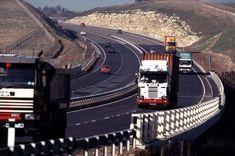
Air-freighted imports have been severely disrupted and fresh produce has allegedly been left sitting on runways for hours, following the foiled terrorist plot which brought all UK airports to a standstill last week.
One importer of Kenyan fresh produce told FPJ that with heightened security measures in place, freight is being left unattended at Heathrow airport as staff are enlisted to accommodate passenger concerns. The potential costs run to tens of thousands of pounds.
He said: “It is hard to quantify the effect of the disruption. We haven’t noticed any defects with our imports but with the amount of freight they are dealing with, it is unlikely the handlers are putting everything into refrigerated storage straight away, so there may be stuff left sitting on the tarmac for some time.”
Avnish Malde, commercial director at exotics importer Wealmoor, said the quality of the company’s imports has not been compromised, but orders are still being seriously held-up due to the widespread cancellation of flights.
Some of the major carriers are unable to fly back to their original destinations, he said, adding: “They are still being quite slow to release freight from the airport and orders were really tight at the end of last week. We were experiencing delays of four-to-five hours, now it is about one or two hours, so although business is getting back to normal we are still having to play catch-up.”
BA World Cargo is again taking new bookings after reportedly cancelling any new orders for its passenger plane cargo services between August 10-15, with its Heathrow facilities operating at 70 per cent of their normal throughput during the peak of the restrictions.
However, a spokesman for BA World Cargo said it “continued to honour existing perishables bookings during the general freight embargo and prioritised all other perishables traffic”, and “connecting perishables consignments that were impacted by flight cancellations were stored in the chiller facility in its cargo handling facility at Heathrow to ensure the integrity of all perishable products was maintained during delays”.
Most airlines relied on freight trucking or additional freighter services to alleviate back-logs at the airport terminals.
A Lufthansa spokesman said perishable items had been diverted away from London airports in temperature-controlled trucks from Frankfurt and the company had relied on its freighter services from the airport in the East Midlands for outbound deliveries.
Anne Walton, commercial director at Exotic Farm Produce, claimed the company’s orders had not been seriously delayed but she anticipated the debacle would have an adverse consequence long-term, with the added security measures likely to incur a surcharge to the already significant cost of airfreighting produce.



